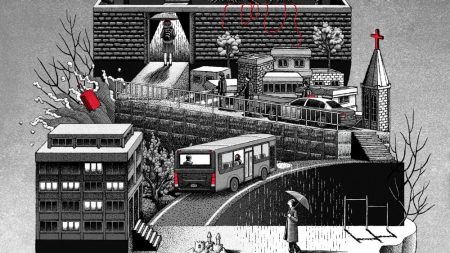The M23 Movement and the fall of Bukavu: A Tale of Misinformation and Conflict
Introduction: The Capture and the Context
In February 2025, the M23 movement seized the airport in Bukavu, a critical location in the Democratic Republic of Congo (DRC), just as the African Union (AU) summit was convening in Ethiopia. This significant event occurred amidst rising tensions in the region, drawing international attention. Concurrently, a misleading social media post began circulating, falsely claiming that DRC President Felix Tshisekedi was celebrating Valentine’s Day in Germany while his country was in turmoil. This narrative,although untrue, underscores the chaos and misinformation surrounding the conflict.
The Misleading Claim: A Photo Out of Context
The misleading post, which quickly went viral, featured a photo of President Tshisekedi presenting flowers to a woman in purple, suggesting he was indulging in celebrations abroad. Originating from Ugandan journalist Andrew Mwenda, the image was actually from 2021, capturing Tshisekedi surprising his wife on her birthday in the DRC. This misuse of old footage highlights how social media can distort reality, fueling public outrage and obscuring the real issues at hand.
President Tshisekedi’s Actual Whereabouts: Diplomacy Over Celebration
Contrary to the false claims, President Tshisekedi was in Germany for the Munich Security Conference, a platform for global leaders to address pressing security issues. During his visit, he engaged in crucial meetings with international figures, advocating for sanctions against Rwanda for its alleged role in the DRC conflict. His presence at the conference was a strategic move to garner support for his nation’s stability, yet he missed the AU summit due to these commitments, leaving Prime Minister Judith Suminwa Tuluka to represent the DRC.
M23’s Advance: A Growing Threat
The M23 movement’s capture of Bukavu’s airport marked a dangerous escalation in the conflict. Following their takeover of Goma, the group continued its aggressive expansion, threatening nearby areas. Their actions have not only disrupted local governance but also sparked fears of broader regional instability, prompting urgent discussions at the AU summit and beyond.
Regional Response: Seeking Solutions
The AU summit in Addis Ababa brought together African leaders to address the deteriorating situation in the DRC. Prime Minister Tuluka’s presence emphasized the DRC’s need for collective action and support. Meanwhile, Tshisekedi’s call for sanctions against Rwanda during his meetings in Germany illustrated the broader diplomatic efforts to contain the conflict’s repercussions.
Conclusion: The Path Forward
The M23’s advances and the misleading narratives surrounding Tshisekedi’s actions highlight the complexity of the DRC’s plight. As the conflict continues, accurate information and united international efforts are crucial. The international community must remain vigilant against misinformation and support initiatives that foster peace and stability in the region.









